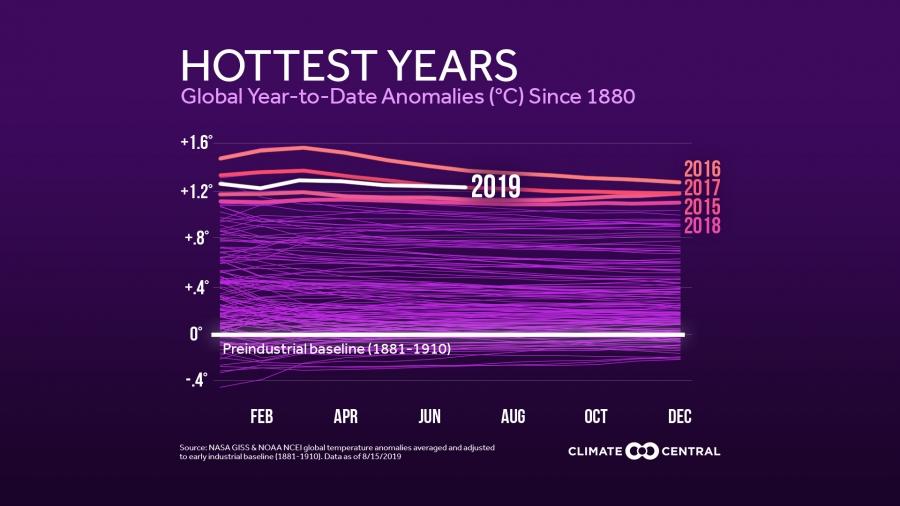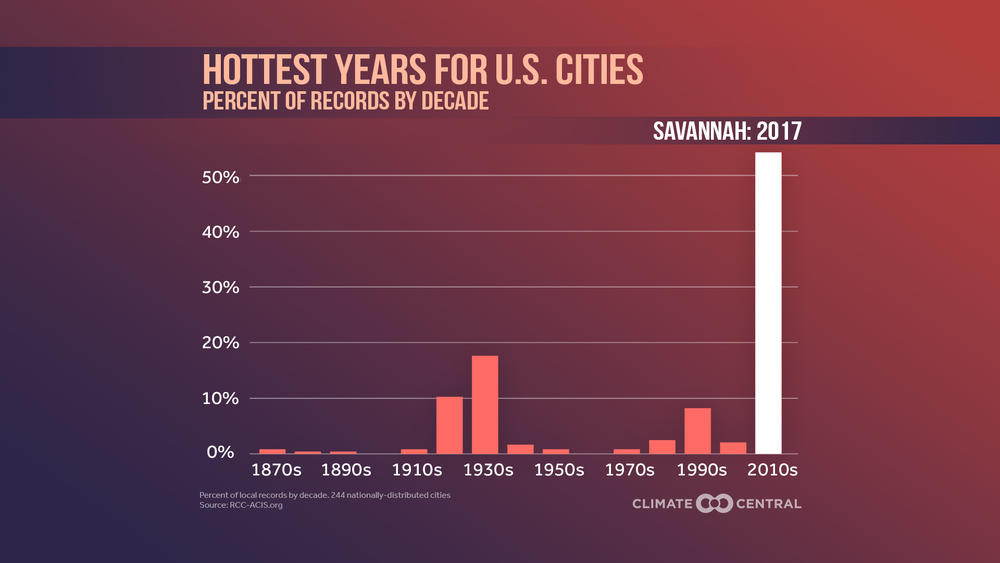Section Branding
Header Content
Record-Breaking Summer Heat Makes 2019 A Contender For Warmest Year On Record
Primary Content
July was the hottest month on record for the planet, according to the National Oceanic and Atmospheric Administration. This year is shaping up to be one of the warmest on record — that means since the late 1800s.
Georgia is no exception to the trend of blistering heat, with Atlanta temperature milestones rising roughly 20% compared to the previous decade, according to Climate Central, which is an independent organization based upon the research and general impact of climate change. Savannah and Augusta had one of their hottest years in history in 2017.
Climate Central calculated the average annual temperatures at 244 individual U.S. stations throughout their periods of record, highlighted the decade in which each record hot year was established, and showed the breakdown of each station’s records by decade.
The high temperatures continue a pattern that now ranks the past half-decade as the hottest five years ever documented.
Marshall Shepherd, director of the atmospheric sciences program at the University of Georgia, told USA Today that he expected 2019 to be a contender for one of the warmest years on record due to climate change and a weak El Niño signal. Shepherd joined On Second Thought last year to break down climate change.
"July affirms that this year, like many of the past two decades, is operating within a new normal climate," Shepherd said.
As the climate warms, an unprecedented amount of extreme heat is expected to escalate.
PREVIOUS COVERAGE: More Extremely Hot Days Mean Stagnant Air, Health Problems
Extreme heat is defined as summer season temperatures that are much hotter and/or humid than average, according to the Centers of Disease Control and Prevention. The effects are most evident within the summer months of June to August and are not restricted to any region or continent on Earth.
Globally, artic regions were charted to have the highest reception to the heat. In Alaska, records that compared the heat of previous summer months were broken. In addition, hundreds of wildfires erupted off the coasts of Greenland and Siberia.
Throughout the 2010s, record highs doubled the amount of record lows within the United States.
In one study, 133 of 244 cities examined were found to have their greatest imbalance of record highs within this decade. Six of these cities were in the Southwest and were documented to have no record lows since 2010.
Severe heat is not only deadly to people but also to numerous resources. Rising temperatures have been known to cause elevation to sea levels, a decrease of adequate food and water supplies and the unpredictable modifications of ecosystems.
While rising temperature continues to be a problem, researchers believe that a solution can be found in placing more efforts into renewable energy, as well as more efficient approaches towards raising agriculture and transportation.
WATCH: The Rising Sea: Climate Change in Georgia


